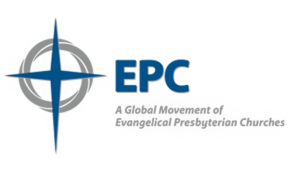- Tags:
- Chronicles
- Old Testament
- suffering
Our Bible reading has led me to ponder how suffering and comfort impact our faith. It all began with a few verses found in Solomon’s prayer during the temple dedication in 2 Chronicles 6.
“If there is a famine in the land or a plague or crop disease or attacks of locusts or caterpillars, or if your people’s enemies are in the land besieging their towns—whatever disaster or disease there is— and if your people Israel pray about their troubles or sorrow, raising their hands toward this Temple, then hear from heaven where you live, and forgive. Give your people what their actions deserve, for you alone know each human heart” (6:28-30, NLT).

For most of human history, people lived life on the ragged edge of survival. Food supplies were fragile as drought, insects or disease could put your entire family at risk. Life was fragile and could be cut short by something as simple as an infected scratch. Security was fragile as any rival nation or marauding group might desire what you possessed and come and take it by force. For most of human history, this awareness of our fragility and weakness drove people to seek help from a higher power, whether that higher power be a god of their own making or The God who made us.
We’ve seen this cycle so many times in our reading. The people are oppressed (by Egypt or the Moabites or a famine). At first they try to deal with it on their own, but over time it wears on them and, eventually, they decide to call out to the One True God. God sees their sincerity (He knows the heart) and responds to meet their need so that they might know that there is a God in heaven who loves them.
I have to wonder, is the lack of stress and concern the reason righteous King Asa drifted from his commitment to the Lord? He started out doing what was “good and right in the eyes of the LORD his God” and he used his position of authority to lead a spiritual reform of the nation. In 2 Chronicles 15:15 we read how the people “sought God eagerly and He was found by them.” This is good news, but it comes with a dangerous blessing. “So the Lord gave them rest on every side.” Decades later Asa sought help from the king of Aram rather than from the Lord as he had done before. What caused him to forget God’s presence and believe that he could figure this new problem out on his own?
My house is not targeted by drones or terrorists. No one is trying to steal my possessions and the Payless shelves have yet to go empty. Except for a short period during the Cold War, I have never felt a national sense of worry over my safety or security. What I have felt is my nation’s leaders promising policies that will bring better days ahead with fewer worries, greater safety and more ample provision for all our needs. How has this “rest on every side” impacted my own faith? How has it touched the faith of my country?
Something struck me while watching the news. I observed another weeping mother/father/family describe their pain at the loss of all they worked for due to fire, flood or storm. I pondered the amazing amounts of rain that can now fall from the sky along with the fires and shootings and accidents and unrest that have become more commonplace in our land. As I listened, I don’t remember hearing one word about the Lord. In fact, whenever there is a rescue or a child is “miraculously” found to be alive I hear people express relief, but rarely anymore do I hear them express thanks to God or any higher power.
It made me wonder…how shall I respond to these things? God knows my heart; at my deepest levels do the concerns of my nation drive me toward Him, toward trusting “someone else” for an answer or toward my own solutions?
In order to get Israel’s attention, God troubled them “with every kind of distress” (2 Chronicles 15:6). When you read the biblical stories you see that “every kind” meant every kind, including political uncertainty as they wondered which king or queen mother would be in charge and what would he or she do with the power? Sound familiar?
Please hear me clearly in this. I am not saying that all our current struggles are caused by God as a response to our nation’s actions (though that could be). I am saying that I find some interesting parallels between the stories we are reading and the spiritual drift we can experience as individuals, congregations and even nations. What if the personal struggles you and I face are an invitation from the Lord to trust in Him or a reminder of our weakness and need for Him? Is there a reason that chronic or terminal disease can lead a person to deeper faith more effectively than chronic ease? If that is the case, what should my heart-response be when I am faced with any kind of distress?
Life will not always include a smooth seam. Much of it feels more like a ragged edge, fragile, fraying and easily torn. In the days ahead, let’s purpose to meet each other on the ragged edges and encourage each other to call out to the One who can truly help. C.S. Lewis said that pain is God’s megaphone to arouse a spiritually deaf world. May the Lord give us all ears to hear!
Limping along the journey with you,

Rob
For the bigger picture, check out Romans 5:1-5, 2 Corinthians 1:3-4, James 1:2-4, 12 and 1 Peter 1:6-7






